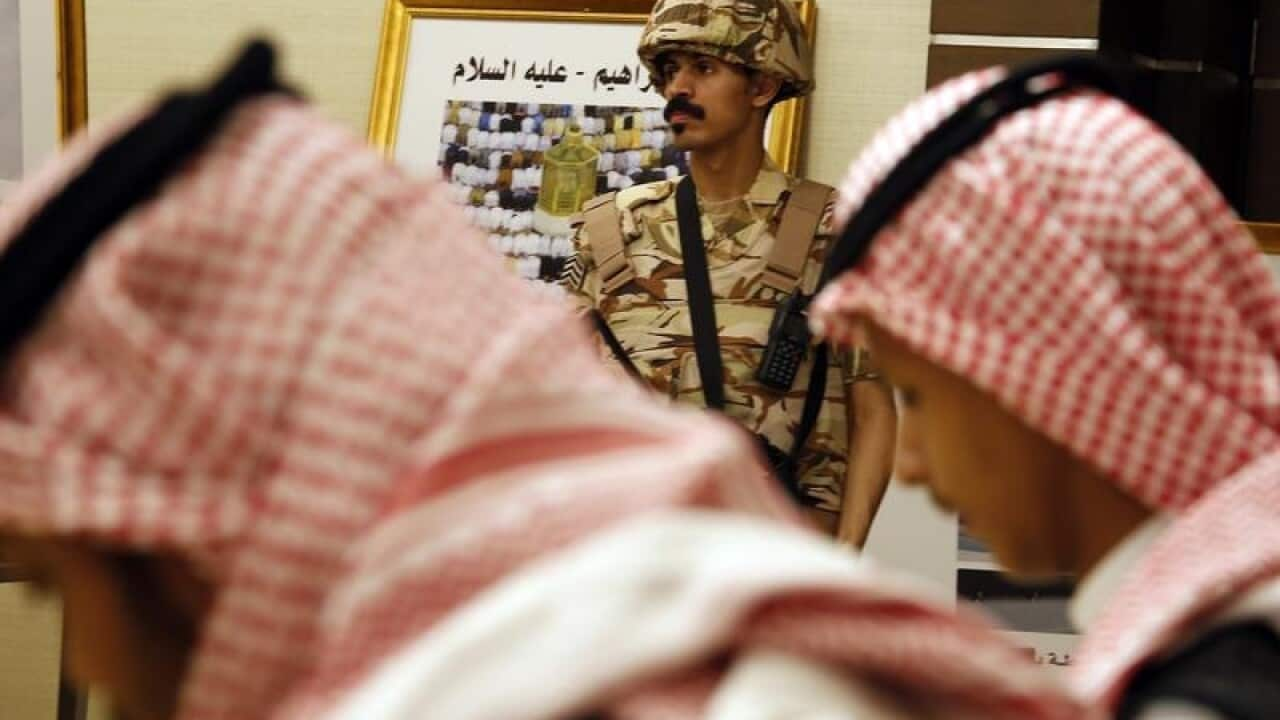Saudi Arabia's king has told an emergency Arab summit decisive action was needed to stop Iranian regional "escalations" after Gulf oil asset attacks.
A Gulf Arab statement and a separate communique issued after the wider summit both supported the right of Saudi Arabia and the United Arab Emirates to defend their interests after the attacks on oil pumping stations in the kingdom and tankers off the UAE.
But in a sign of regional tensions, Iraq, which has good ties with Iran and the US, said it objected to the Arab communique, which stated any cooperation with Tehran should be based on "non-interference in other countries".
"The absence of a firm deterrent stance against Iranian behaviour is what led to the escalation we see today," King Salman told the two meetings.
The ruler of the world's top crude exporter said Shi'ite Iran's development of nuclear and missile capabilities and its threatening of world oil supplies posed a risk to regional and international security.
US Secretary of State Mike Pompeo said on Thursday the attacks on the four vessels near a major bunkering hub, just outside the Strait of Hormuz, were "efforts by Iranians to raise the price of crude oil around the world."
Riyadh accused Tehran of ordering the drone strikes, which were claimed by Yemen's Iran-aligned Houthi group. US national security adviser John Bolton said evidence of Iran's culpability in the tanker attacks would be presented to the UN Security Council as early as next week.
Tehran denies any involvement.
Iraqi President Barham Salih, asking the gathering to support his country's stability, said rising tensions with Iran could spark a war if not managed well and voiced hope Iran's security would not be targeted.
Both Riyadh and Abu Dhabi have said they do not want war.
"The kingdom is keen to preserve the stability and security of the region, to spare it the scourge of war and to realise peace and stability," King Salman said.
Tensions have risen between the US and Iran after President Donald Trump withdrew Washington from a 2015 international nuclear deal with Iran, re-imposed sanctions and boosted its Gulf military presence.
The final communique said regional stability required the establishment of an independent and sovereign Palestinian state along 1967 borders, when Israel captured Gaza, the West Bank and East Jerusalem.
US special envoy for Iran, Brian Hook, said a repositioning of US military assets in the region had succeeded in deterring Iran, but that the US would respond with military force if its interests are targeted.
The US and the UAE, which hosts a US air base, on Wednesday activated a defence cooperation agreement signed earlier this year.
Gulf states have a joint defence force under the Gulf Cooperation Council (GCC), but the alliance has been fractured by a boycott imposed on Qatar by Saudi Arabia, the UAE, Bahrain and non-GCC Egypt since mid-2017.

